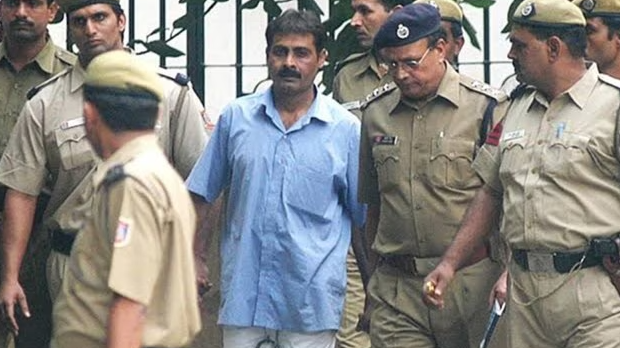Mercy Petition (GS Paper 2, Governance)

Introduction:
- The recent denial of a mercy petition by the President of India for a Pakistani national sentenced to death for the 2000 Red Fort terrorist attack has highlighted the importance and complexities of mercy petitions in India.
- This article provides a comprehensive examination of the concept, constitutional framework, philosophy, judicial review, and significant judgments related to mercy petitions, as well as a comparison with international practices.
What is a Mercy Petition?
About:
- A mercy petition is a formal request made by a convict sentenced to death or imprisonment, seeking clemency from the President or the Governor.
- This mechanism exists in several countries, including the USA, UK, Canada, and India.
- Article 21 of the Indian Constitution, which guarantees the right to life, forms the basis for the concept of mercy petitions.
Philosophy Behind Mercy Petitions:
- The philosophy of pardoning powers in India is rooted in the recognition that no judicial system is infallible and that there must be mechanisms to rectify potential judicial errors.
- This safeguard serves as a corrective measure against miscarriages of justice, helping maintain public trust in the criminal justice system.
- Rectification of Judicial Errors: The pardoning power acts as a final check to prevent the miscarriage of justice due to judicial errors.
- Maintaining Public Trust: Ensuring that the criminal justice system is perceived as fair and just is essential for maintaining public confidence.
Constitutional Framework:
- Article 72: Empowers the President to grant pardons, reprieves, respites, or remissions of punishment, or to suspend, remit, or commute the sentence of any person convicted of an offense:
- In all cases where the punishment or sentence is by a Court Martial.
- In all cases where the punishment or sentence is for an offense against any law relating to a matter to which the executive power of the Union extends.
- In all cases where the sentence is a sentence of death.
- Article 161: Grants similar powers to the Governors of states, allowing them to pardon, reprieve, respite, or remit punishment for offenses against state laws.
Process of Making a Mercy Petition:
- Although there is no statutory written procedure, typically, a convict or their relative submits a written petition to the President, which is then forwarded to the Ministry of Home Affairs for comments and recommendations. The process involves several steps:
- Submission: The convict or their representative submits a written petition to the President.
- Review: The President’s Secretariat forwards the petition to the Ministry of Home Affairs.
- Recommendation: The Ministry of Home Affairs reviews the petition and submits its recommendations to the President.
- Decision: The President makes the final decision based on these recommendations.
Grounds for Filing a Mercy Petition:
Mercy or clemency may be granted based on various grounds, including:
- Health: The convict's physical or mental health condition.
- Family Conditions: The financial and social condition of the convict's family, especially if the convict is the sole breadwinner.
- Humanitarian Grounds: Circumstances that evoke a sense of compassion or justice.
Judicial Review:
- The Supreme Court of India has established that the exercise of pardoning power can be judicially reviewed on limited grounds.
- This ensures that the process remains just and is not misused. The grounds for judicial review include:
- Non-application of Mind: If the decision appears to have been made without proper consideration.
- Malafide Intentions: If the decision is influenced by corrupt motives or personal vendettas.
- Exclusion of Relevant Material: If significant information was ignored or excluded in the decision-making process.
Important Judgments Related to Mercy Petitions:
- Bachan Singh v. State of Punjab (1980): The Supreme Court upheld the constitutionality of the death penalty but emphasized that it should be awarded only in the "rarest of rare" cases.
- Maru Ram v. Union of India (1981): Clarified that the power to grant pardons under Article 72 is exercised on the advice of the Council of Ministers.
- Kehar Singh v. Union of India (1989): Examined the President’s pardoning power, noting that convicts do not have the right to an oral hearing for mercy petitions.
- Shatrugan Chauhan v. State of U.P. (2014): Held that inordinate delays in deciding mercy petitions can lead to commutation of death sentences.
Types of Pardoning Power:
- Pardon: Completely absolves the convict, erasing the conviction and all penalties.
- Commutation: Substitutes a harsher punishment with a lighter one.
- Remission: Reduces the period of the sentence without changing its nature.
- Reprieve: Temporarily postpones the execution of a sentence.
- Respite: Temporarily postpones the execution of a sentence, often for medical reasons.
International Practices:
- USA: The President can grant reprieves or pardons for federal offenses, while state governors hold similar powers for state offenses.
- UK: The Constitutional monarch can pardon or reprieve offenses on ministerial advice.
- Canada: The National Parole Board can grant relief under the Criminal Records Act.
Conclusion:
- The mercy petition system is a vital component of the Indian justice system, serving as a crucial check against judicial errors and upholding humanitarian principles.
- To enhance the effectiveness and fairness of the process, the following measures could be implemented:
- Transparency: Establish clear guidelines for considering petitions and defining timeframes for decisions.
- Legal Representation: Ensure that petitioners have access to legal representation during the process.
- Public Trust: Promote transparency and accountability to maintain and enhance public trust in the system.
Way Forward:
- By balancing the system’s strengths and addressing its shortcomings, India can ensure a more humane and effective application of this extraordinary power, ultimately reinforcing the principles of justice and fairness in the criminal justice system.


